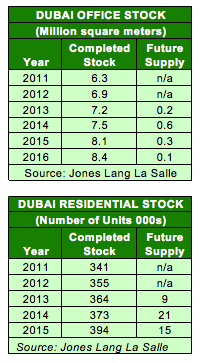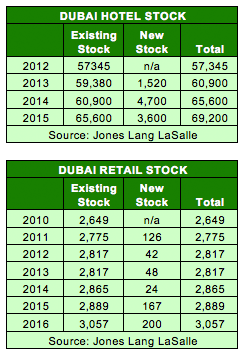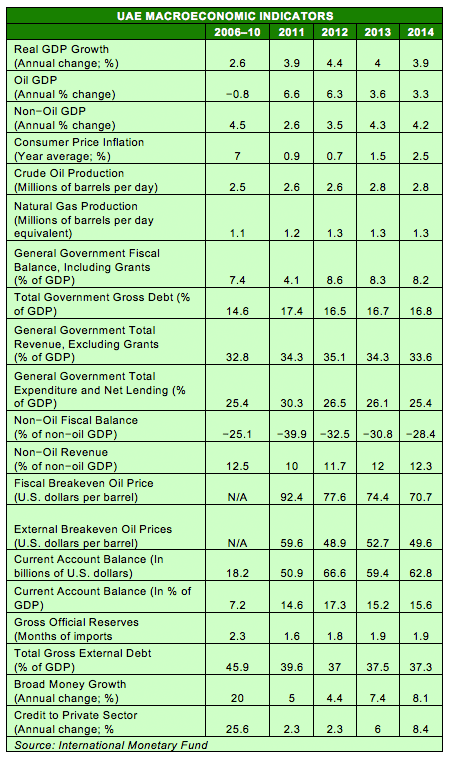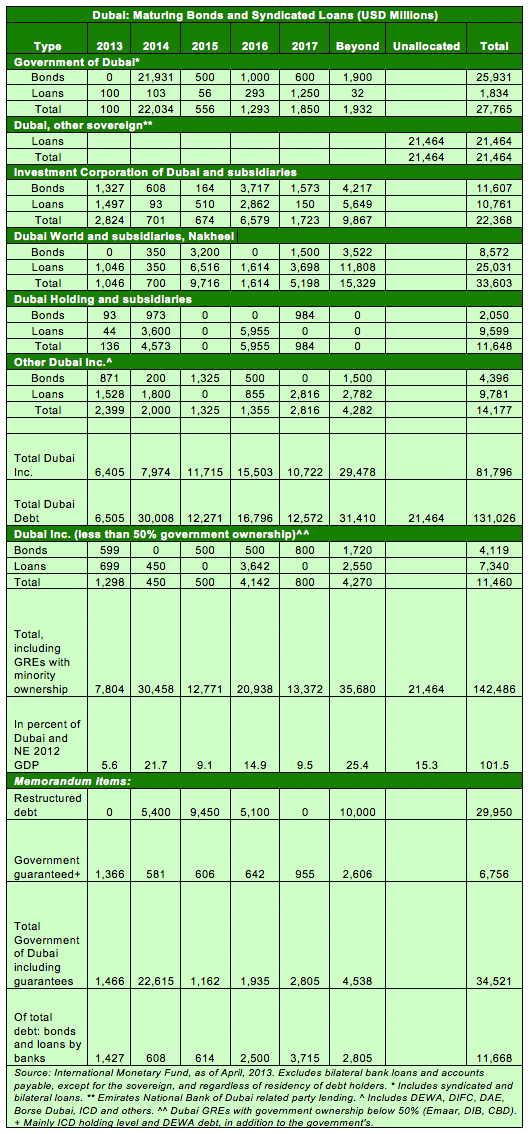Dubai's dream of hosting the World Expo 2020 has become a reality and the next seven years will present a host of opportunities for the emirate to build on its strength and expand its offering as a global business hub.
"Dubai Expo 2020 will breathe new life into the ancient role of the Middle East as a melting pot for cultures and creativity," tweeted Sheikh Mohammad Bin Rashid Al Maktoum, UAE prime minister and ruler of Dubai, echoing the Dubai Expo 2020 theme of "Connecting Minds, Creating the Future".
The emirate edged out strong competition from Izmir in Turkey, Yekaterinburg in Russia and Sao Paolo in Brazil to win the right to host the event, which takes place once every five years. The last event was held in 2010 in Shanghai, China and the next will be held in Milan, Italy in 2015 before it comes to the Middle East for the first time in 2020.
The authorities estimate the event would generate around USD 23 billion of GDP (25% of Dubai's current GDP) over the next seven years, attract 20 million visitors and generate 300,000 new job opportunities. The emirate's GDP is expected to rise 2% over the next few years.
"Providing it achieves its attendance targets, Dubai Expo could prove highly profitable. Official authorities estimate the event will generate nearly USD 17.7 billion in added value to the UAE economy and that for every US dollar spent by Dubai, its economy should reap a six-fold return," Standard Chartered Bank said in a note.
THE EXPO EFFECT
The emerging market bank expects three key benefits that would drive growth.
1. The event is set to lift confidence in Dubai's housing sector by supporting long-term demand dynamics and underpinning fundamentals as the key driver of the property market rebound.
2. Most of the infrastructure and related housing facilities will be built in the relatively less populated southern part of the city, which will contribute to Dubai's expansion.
3. Third, on the hospitality front, the authorities estimate that 25 million people are likely to visit the Expo, of which 70% will come from outside the UAE. "We expect the supply of hotels to expand, particularly in the vicinity of the site. Hotel occupancy rates should rise during the six months of the event. A key focus for Dubai will be to maintain tourist inflows afterwards to prevent an oversupplied hospitality sector," the bank said.
Egyptian investment bank EFG-Hermes expects the Expo 2020 effect to be evident as early as next year with GDP jumping 5.4% compared to its previous forecast of 4.5%.
"Our growth upgrade is largely due to a pickup in the investment outlook as a result of the successful bid, although we also see an associated pickup in consumption," the bank said.
"We now view the UAE as having the second strongest real non-oil GDP growth in the region, after Qatar. The initial pickup in economic activity was more consumption-led, supported in 2011 by the Arab Spring and the rise in property prices."
MULTIPLIER EFFECT
The new wave of investments will add to the USD 705 billion worth of projects already under way in the emirate over the next 10 years.
"The multiplier effect of government spending would ripple throughout the economy. It would also be an opportunity to showcase UAE companies to potential customers and investors," said Global Investment House.
Apart from enhancing the infrastructure - a virtue that really helped Dubai during its low period of 2009-2011, the emirate would also benefit from enhanced global media exposure.
In addition, raising Dubai's profile as an open, vibrant business hub in the heart of Middle East would be invaluable promotional tool - the kind that could only be attained by spending millions on advertising.
Of course, the emirate will need to be careful. Qatar has recently been under fire for its management of its foreign labor workforce as it prepares to host the 2022 FIFA World Cup, and has been called out for its poor labor rights record.
The Dubai authorities will do well to ensure that all the necessary frameworks and regulations are in place to ensure that the event is only remembered for positive developments, and foreign labor is offered adequate working conditions.
Despite the labor issues which need to be addressed, Qatar is basking in the glow of the 2022 FIFA World Cup bonanza.
When Qatar won the right to host the World Cup in December 2010, the country's stock exchange jumped 9% within a week's time.
The Expo may have a similar effect on the Dubai Financial Market, except that the market has already been soaring at record highs.
However, it could be a boon for UAE banks.
"The government would finance the expo through a mix of bond issuance, bank borrowings and cash raised from asset disposals and profits from Dubai Inc. businesses," notes Global.
"This huge borrowing would mobilize loan growth of the banking sector and lead to strong fee generation over investment banking deals. UAE banks have the capacity to lend additional [AED 300 billion] given their current and forecasted lending ratios."
Emirates NBD could well be the biggest beneficiary as the largest bank in the emirate, while Dubai Islamic Bank (which has less than 13% exposure into government sector lending), Mashreq Bank and Commercial Bank of Dubai should also benefit.
"Amongst the UAE-based banks, Abu Dhabi Commercial Bank and First Gulf Bank would benefit the most due to their very low exposure (2% and 11%, respectively) into government sector. NBAD will benefit due to its sheer size," Global said.
RISING REAL ESTATE FEARS
Despite fears of a massive jump in rents and real estate prices, most analysts believe the emirate's soaring real estate market should start to moderate as new supply comes in.
"We expect price rises to moderate in the medium term, particularly in prime areas, as the market price moves closer to tenants' reservation price," Standard Chartered Bank said. "Priced-out tenants are moving to more affordable units, which is contributing to the broad-based recovery of the residential sector."
Indeed, a revival in construction and property projects may help alleviate Dubai's debt burden over time, says NBK Capital in a note.
"As the emirate continues to restructure its debt, the win comes as a sigh of relief to debtors as they will likely take advantage of the higher capital inflows to pay off their debts. The IMF estimates that about USD 64 billion of debt owed by Dubai's Government-Related Enterprises (GREs) and government will be due between 2014 and 2016. The win will likely facilitate the emirate's efforts to repay its debt and enhance Dubai's brand and credibility."
The ripples will also be felt by the cement sector which has seen its utilization fall dramatically after the real estate crash of 2008, as construction projects were halted or mothballed.
"The recent announcement of expo, we believe that tables would shift in a couple of years as soon as the contracts start rolling out. We expect companies with larger capacities to benefit the most specially Arkan Building Material, Sharjah Cement, Union Cement and Gulf Cement," Global said.
The Kuwaiti bank also expects Arabtec and Drake & Scull - the two biggest contractors in Dubai - to reap maximum benefits out of the exhibition on account of their wider expertise and strong presence in the market, with DEPA being another beneficiary.
"Other regional contractors and construction companies in the listed space who would benefit from the expo would be Orascom Construction of Egypt, Combined Contracting Group of Kuwait, Jazeera Steel of Oman, Industries Qatar (Steel Division), SABIC's (Steel Division) & Galfar Engineering of Oman," the investment bank said.
However, it is possible that the euphoria may get the better of some developers looking to profit from the boom.
Dubai's real estate prices have already risen 21.8% this year - second only to Jakarta, according to Knight Frank.
The International Monetary Fund recently warned the emirate to keep a close eye on its soaring property market.

"Caution will be more acutely needed in real estate. The government will need to ensure that the new mortgage caps are fully enforced if it is to prevent the repeat of another 2003-2008 boom-bust cycle," NBK said, adding that the Expo win could result in the oversupply of residential and commercial property.
"The new and tighter mortgage lending rules and regulations are due to come into effect very soon. The new mortgage caps along with continued caution should help keep potential speculative bubbles at bay."
However, Fitch Ratings has raised the issue of how some of the construction will be funded.
"The longer-term impact is uncertain," Fitch director Bashar Al Natoor said. "A well-managed expo could attract more businesses to the emirate's free zones and raise its standing as a travel destination, which could create a long-term boost for the economy. However, the scale of the planned expansion also creates a significant risk that there will not be enough demand to support the new hotels, offices and retail space once the expo is finished."
HOTEL ROOMS FOR GROWTH
Of course, the biggest beneficiary should be the hospitality and retail sectors. Real estate consultant Jones Lang La Salle states that more than 840,000 square meters of gross leasable retail space is expected to come to the Dubai market by 2016. In addition, a little over 6,000 new hotel rooms are expected to come on the Dubai market next year, taking the emirate's total hotel room stock to just over 65,000.

But the emirate expects to have 80,000 hotel rooms by 2020, suggesting that more than 15,000 new hotel rooms (more if older hotels are revamped) may be built before the event begins.
In September, the Dubai Department of Tourism and Commerce Marketing began offering financial incentives to build three-star and four-star hotel supply, in an effort to move away from the stunning luxurious hotels and cater to the mid-segment of the market.
"Substantial private-sector spending will be needed, particularly in the hotel sector. Private-sector credit growth is currently neutral," said Standard Chartered. "It hit 48.4% in 2008, and has been flat post 2009. We expect to see a revival in credit growth and healthy lending dynamics within the banking sector."
In a sign of confidence even before the Expo bid was secured, Emirates Airline ordered 50 Airbus A380s at a list price of USD 20 billion at the recently concluded Dubai Airshow, to take its total order for A380s to 140. The airline also placed a USD 76 billion order with Boeing Co. to buy 150 of the manufacturer's new 777X aircraft, as the authorities pull all the levers to achieve the target of 20 million visitors by the end of the decade.
Of course, Emirates will not be the only airline that should benefit, as the ripple effect will cascade through to Etihad Airways, Air Arabia and the airports of both Abu Dhabi and Sharjah as visitors pour in from all corners of the world.
"Du and Etisalat would see their mobile subscriptions growing multiple times," said Global. "Agility and KGL logistics might acquire new transport contracts."
In addition, the 438-hectare Expo 2020 site is equidistant from Abu Dhabi and Dubai, and away from the crowded downtown core, which should present fresh opportunities in expanding the emirate's boundaries.
In addition, the site is located next to the Al Maktoum International Airport, which is expected to bring in around 20 million visitors. Its proximity to the Jebel Ali Port will also cut costs for exhibitors bringing in materials for the construction of the massive pavilions that should dot the venue.
MACROECONOMIC GROWTH
Even before receiving confirmation of the rights to host the Expo, the authorities had begun working on a budget for 2014 that was 11% higher than the previous fiscal year. The focus has clearly been on growth.
Abdul Rahman Saleh Al Saleh, director general of the Department of Finance (DOF) in Dubai, said that Dubai has succeeded in reducing the gap in the budget of 2014 between public revenues AED 37 billion and public expenditures AED 37.88 billion, by 41% compared to fiscal year 2013.
The budget plan envisages Dubai posting a deficit of AED 882 million next year, or 0.26% of gross domestic product, down from AED 1.5 billion deficit budgeted during 2013.
While balancing the budget was a possibility, the government's preference is to "expand its expenditures to support the emirate's economy and contribute to the higher rates of economic growth through increased public spending," Saleh said.
The government expects a 13% jump in revenues in fiscal 2014 compared to the same period last year, with a 67% rise in government services revenues. Taxes are expected to rise 1%, representing 21% of total government revenues, and include customs and foreign banks levies. Net oil revenues are expected to account for 9% of the Dubai's government revenues.
A little over 37% of government expenditure will be spent on salaries and wages, and the government is expected to provide 1,650 more job opportunities for its citizens.
Crucially, the government expects to spend 17% of total budget on infrastructure projects.

"The emirate plans to launch new projects in the coming period to support Expo 2020, which will make the emirate even more attractive to investments," the official budget statement noted.
"Therefore, it begun the preparation for the expansion of infrastructure projects through increased allocations within the budget of fiscal year 2014 to AED 6,350 million, an increase of 13% from 2013 and Dubai plans to maintain the size of its investments in infrastructure through the next five years."
Among other projects, it plans to spend AED 2 billion by 2017 to build a canal through its downtown area, creating new waterfront land that could be used for hotels, marinas and other tourist areas, according to Global.
The emirate will also allocate 11% of expenditure on interest on bonds and payment on the principal amount.
Other key government expenditures will focus on social development sector including health care, education, housing and community development, amounting to 35% of government spending.
The Dubai growth may bump up IMF's recent forecast of 3.9% growth for the UAE in 2014, led by a 4.2% jump in the non-oil GDP.
The country's oil production is expected to remain steady at 2.8 million, but revenues are expected to be subdued as the global crude oil prices remain low over the next few years in light of a relatively moderate geopolitical environment and higher supplies.
But both Abu Dhabi and Dubai are investing heavily in stimulating the non-oil sector which should help raise the expected rate of economic growth. The Dubai Expo 2020 is just the accelerator the economy needed.
It is also easy to underestimate the wider impact it would have on the Abu Dhabi economy which is also developing new hotels, entertainment and cultural centers and raising its logistical and travel and tourism offering. Combined the two emirates should help the UAE economy propel forward.

PREVIOUS HOSTS
NBK Capital notes that Dubai's economic benefits will be amplified given its relatively small population.
Shanghai's 2010 Expo event earned it an operating profit of over USD 164 million, although Germany's Hanover event led to losses of about USD 1.6 billion after attendance fell far short of forecasts.

"However, the latter scenario is unlikely in Dubai's case, especially since the Expo comes to MENA for the first time. Expectations of what Dubai will showcase are high and given its proven track record of accomplishments, it is unlikely to disappoint, though potential excesses will need to be watched."
Post-event risks are also common among hosts of major events. South Africa enjoyed 84% occupancy rates during the 2010 FIFA World Cup, but then saw it dip to around 55% in subsequent months.
The trick for the Dubai will be to keep the momentum going well beyond the excitement of 2020.
"In the short term, confidence and positive sentiment could add further impetus to the housing-market recovery, which started in 2011, underpinned by the economy's broad-based recovery," Standard Chartered noted.
"In the medium term, we expect a pick-up in infrastructure investment, with projects ranging from transportation to hotel investment. Financial incentives have been announced, such as the Department of Tourism and Commerce Marketing waiving municipality fees in order to expand mid-range hotel supply. We expect these incentives to be mirrored in other sectors."
© Zawya 2013




















